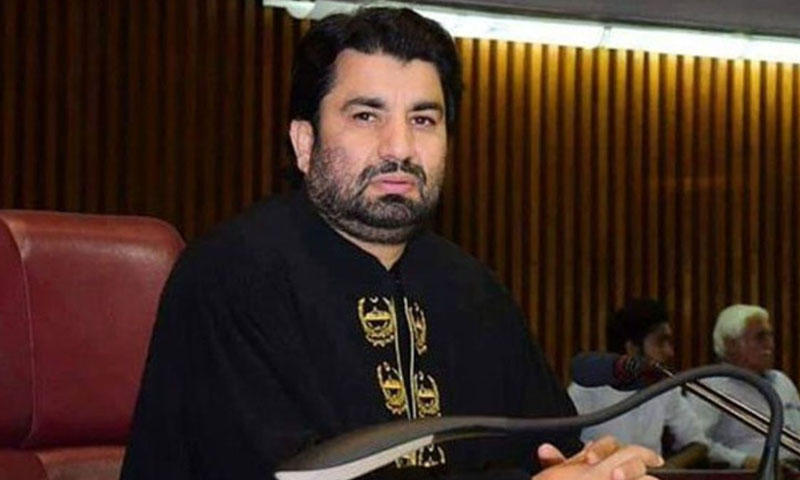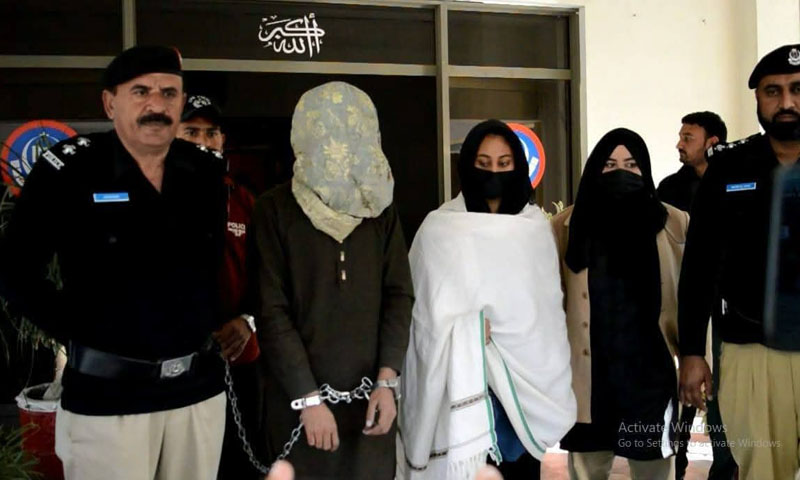- Web Desk
- Feb 09, 2026
Ghizer leads as G-B rocked by 46 suicides in 2024
-

- Tanveer Abbas Web Desk
- Jan 01, 2025

GILGIT: Gilgit-Baltistan (GB) continues to grapple with a high number of suicide incidents with at least 46 people ending their lives in 2024 with Ghizer district leading the statistics.
Official reports reveal a grim picture, with 27 men and 19 women among the deceased. The district-wise breakdown shows six men and three women from Gilgit, two men from Diamer, two men and one woman from Skardu, 13 men and 13 women from Ghizer, one woman from Ghanche, three men and one woman from Hunza, and one man from Nagar.
The troubling statistic closely follows the 47 suicides recorded in 2023, which included 28 men and 19 women. In 2023, Gilgit reported eight men and three women, Diamer three men, Skardu two men and one woman, Ghizer 10 men and five women, Ghanche one man and five women, Astore two women, Hunza two men and three women, and Shigar two men.
Mental health experts have expressed deep concern over the consistent numbers, urging immediate attention to the underlying causes. The disproportionate cases from Ghizer remain particularly alarming, as the district alone accounted for more than half of the total suicides in 2024.
The Gilgit-Baltistan government made attempts to address the issue by constituting two special committees in 2017 and 2022 to investigate the causes of the rising suicides. However, these efforts have yielded little success, as no significant reduction in cases has been observed.
Also read: Murder, suicides claim five lives, intervention saves one youth
In 2022, an 18-member committee led by GB Assembly Deputy Speaker Nazir was formed to probe the causes.
The committee included Nawaz Khan Naji and Ghulam Muhammad, both members of the GB Assembly, parliamentary secretary for women Kaniz Fatima, and chairperson of the women’s development department Sanum Bibi, along with the department’s secretary.
According to committee member Nawaz Khan Naji, a combination of societal changes and systemic failures are major contributors to the crisis. He cited the rapid pace of modernisation and the resulting generation gap as significant factors.
“The societal transformation that took 500 years in the West has unfolded here in just 50 years. Youth from remote areas dream of a European lifestyle, but their circumstances make it unattainable,” he explained.
Naji further criticised the systemic issues in the region, pointing to what he described as an “unjust and failed state” rife with discrimination, sectarianism, extremism, and nepotism.
“Only those with power, influence, or illegal recommendations can succeed here. There is no meritocracy. When an illiterate individual is made a chief minister by power centres rather than being elected by the assembly, what hope do educated individuals have? What can they do except for taking their own lives?” he lamented.
He also highlighted the lack of opportunities for qualified individuals, especially women, in the region. “Young men and women from Gilgit-Baltistan are capable of working in US aerospace institutions, yet positions like naib tehsildar are reserved for individuals from certain areas, such as Darel. An educated girl from another part of the region has no chance of being appointed there. In such a situation, what options are left for her other than suicide?” he remarked.
Consultant psychiatrist Dr Jan Alam added valuable insights, linking 80 per cent of suicides to depression, 10 per cent to drug addiction, and another 10 per cent to personality disorders.
“Mental health issues are not seen as a disease here. People often turn to faith healers instead of seeking psychiatric advice. There is a stigma that anyone consulting a psychiatrist is considered a ‘lunatic,’” he explained.
Dr Alam emphasised the severity of suicide as a psychiatric emergency, noting that 75 per cent of people who discuss suicide, even jokingly, eventually commit the act.
He stressed that prevention is possible if mental health is treated as a legitimate medical issue. “In the last five years, there has been some progress as more people are coming forward for consultations,” he noted.
He identified peer pressure as another major cause, citing societal comparisons such as academic success, career achievements, and material possessions as triggers. Other contributing factors include unemployment, divorce, separation, loneliness, and sadness. “Sharing joys and sorrows with friends and family is crucial,” he advised.
For prevention, Dr Alam stressed the importance of raising awareness, reducing societal comparisons, and recognising mental health issues as treatable conditions.
“By promoting understanding and support, we can save lives and address this alarming crisis,” he said.




